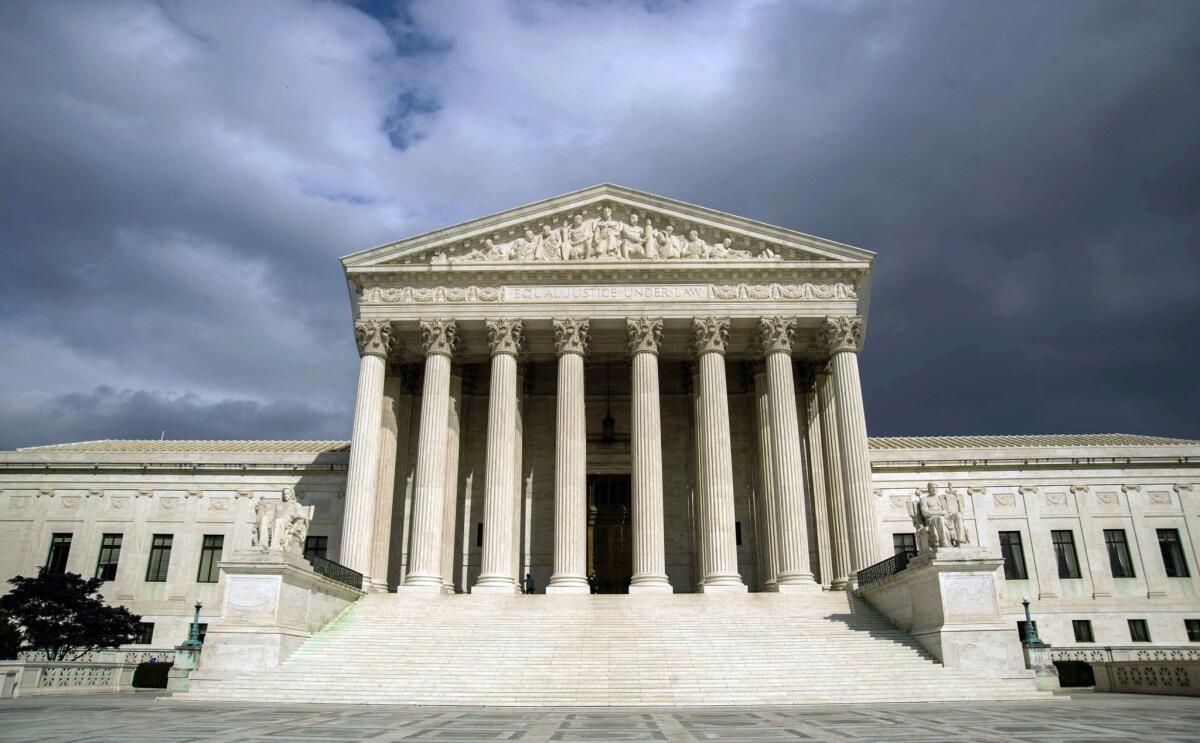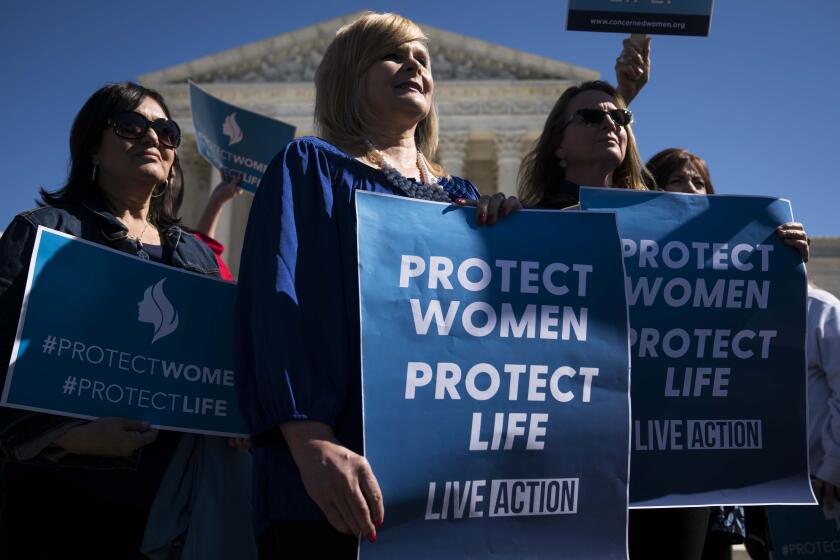Op-Ed: Data undeniably show why the Supreme Courtâs June Medical abortion outcome is good for women

On Monday, the Supreme Court ruled that a restriction on abortion in Louisiana was unconstitutional. The case, June Medical Services vs. Russo, involved a law requiring physicians performing abortions to have admitting privileges at a nearby hospital. Although the legislationâs backers claimed it was about protecting the health of abortion patients, in reality, the law â one of hundreds of state statutes that make it harder for women who want abortions to get them â would have harmed women and their families.
Just four years ago, the Supreme Court decided in Whole Womanâs Health vs. Hellerstedt that an identical admitting-privileges law in Texas was also unconstitutional. In that case, the justices asserted that an abortion restriction whose purpose is to protect womenâs health must be based on demonstrated benefits and not just on the intent of the lawmaker. To survive constitutional scrutiny, the court ruled that valid data or empirical studies must show that the benefits of such laws outweigh the burdens imposed.
The Louisiana case was a rerun of a Texas abortion case from four years ago, but before a more conservative Supreme Court.
In June Medical vs. Russo, Justices Stephen Breyer, Sonia Sotomayor, Ruth Bader Ginsberg and Elena Kagan found that the Louisiana law did not meet that standard. Requiring admitting privileges would have left just one physician to provide care to 10,000 women in that state. Moreover, abortion performed in a clinic carries a major complication rate of less than a quarter of 1%, and admitting privileges can be shown to have no bearing on whether the few women who need hospitalization get it.
Chief Justice John Roberts joined the liberal judges to arrive at the 5â4 decision, but his reasoning was primarily based on honoring the precedent established in the Whole Womanâs Health case. He refused to rule on whether the Louisiana restriction created an undue burden on the right to abortion, and he rejected the need to weigh the evidence as the Whole Womanâs Health decision requires.
I can imagine why Roberts, known to be opposed to abortion, would shy away from weighing the benefits and harms in the June Medical case. Any such exercise would not only go against requiring hospital privileges, it would upend other similar restrictions on abortion rights.
I led the Turnaway Study at UC San Francisco, which followed 1,000 women, some of whom received abortions and others of whom sought abortions at the very same clinics but were just a few days or weeks further in pregnancy and were denied the procedure. The comparison of outcomes of these two sets of women shows â empirically, with valid data â that access to abortion services improves womenâs physical health and increases economic security for them and their children.
My team of researchers interviewed women for five years after they either obtained or were denied an abortion. We found that those who were turned away, who carried unwanted pregnancies to term, experienced lower rates of full-time employment, greater poverty, a higher likelihood of continued violence from the man involved in the pregnancy, more short-term anxiety, and more serious health complications from pregnancy such as hemorrhage, eclampsia and even death.
Abortion opponents may hope that women denied abortions would embrace the idea of becoming a mother or having another child, and possibly marry the man involved in the pregnancy. Or, if the woman cannot raise the child herself, that she will simply place the child up for adoption. But these scenarios are not common among the women we studied who carried unwanted pregnancies to term.
Only 3% of women denied abortions got married in the next two years. (And 3% of those who were married at the time of conception got divorced over that time period.) Of those who carried a pregnancy to term and gave birth, only 9% chose to place the child up for adoption.
The results of 50 scientific papers stemming from the Turnaway Study data show the measurable harms that result from being denied a wanted abortion. It forces women to have and raise children under less optimal circumstances than women who receive an abortion and choose to have children in the future. As one woman in California who was denied an abortion at age 18 put it, âI wish I had had [my daughter] when I was older, more stable, more financially set ⌠because it was like raising her and trying to figure me out. But I was raising both of us â myself and her.â
Chief Justice Robertsâ adherence to precedence will be celebrated by those who favor abortion rights. His vote has helped preserve not just the right to abortion but access to it. And yet, an honest assessment of the costs and benefits of laws that whittle away at access to abortion would go even further, working against all the laws that block women from exercising their rights. Denying people control over their own childbearing carries provable negative consequences that last a lifetime.
Diana Greene Foster is a UC San Francisco professor and director of research at the universityâs Advancing New Standards in Reproductive Health project. She is the author of the âTurnaway Study: Ten Years, a Thousand Women, and the Consequences of Having or Being Denied an Abortion.â
More to Read
A cure for the common opinion
Get thought-provoking perspectives with our weekly newsletter.
You may occasionally receive promotional content from the Los Angeles Times.











